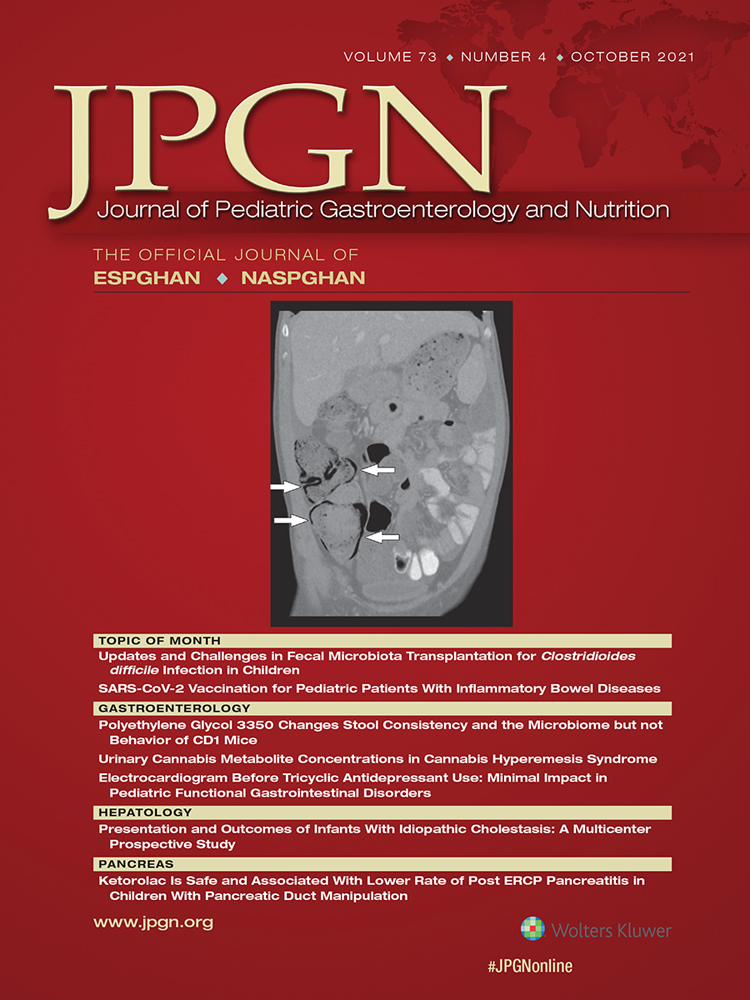Electrocardiogram Before Tricyclic Antidepressant Use
Minimal Impact in Pediatric Functional Gastrointestinal Disorders
Drs Lauren J. Klein and Reid C. Chamberlain contributed equally to this work.
The authors report no conflicts of interest.
Source of Funding: None declared.
Author Contributions: L.K., R.C., K.B., A.M., and R.N. contributed to the research design, drafted and revised work, approved the final version to be published, and agreed to be accountable for all aspects of work. L.K., R.C., and K.B. acquired and analyzed the data.
Supplemental digital content is available for this article. Direct URL citations appear in the printed text, and links to the digital files are provided in the HTML text of this article on the journal's Web site (www.jpgn.org).
ABSTRACT
Objectives:
The aim of this study was to determine the effect of electrocardiogram (ECG) findings on the initiation of tricyclic antidepressants (TCAs) for functional gastrointestinal disorders (FGIDs) and to evaluate cardiac outcomes related to low dose TCA use.
Methods:
We performed a retrospective chart review of all pediatric outpatients at a tertiary pediatric hospital with an ECG ordered by a pediatric gastroenterologist when considering initiation of a TCA between January 2011 and February 2018. We collected demographics, previous cardiovascular testing results, TCA dosing, and pertinent outcomes, including cardiology referrals, emergency department, and hospital admissions, and death during the study period. All ECGs were reviewed for corrected QT (QTc) interval, heart rate, and other abnormalities.
Results:
Of 233 patients with screening ECGs, most (84.1%) were prescribed a TCA. Functional abdominal pain or dyspepsia account for 82.0% of diagnoses. Initial TCA dosing of amitriptyline varied widely, 10–50 mg/day, and the dose was not associated with QTc intervals. TCAs were not started in only 1.7% (4/233) due to ECG results. A significant ECG abnormality prompting cardiology referral was found in eight (3.4%) with a prolonged QTc interval in one (0.4%). In 10.7% (25/233) of patients, screening ECG was obtained despite available ECG in the chart. No deaths and no emergency department or hospital visits for arrhythmia or drug overdose occurred.
Conclusion:
Screening ECGs infrequently influence TCA initiation and may lead to increased resource utilization. The overall frequency of cardiology referral due to ECG results is low. Serious adverse cardiac events are unlikely with low dose TCA administration.




